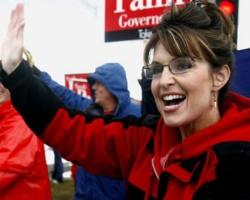When Jessica Stollings learned on Facebook that John McCain had named Sarah Palin as his running mate, the 26-year-old from Bristol, Tenn., took the day off and picked up some campaign yard signs. Just like that, she went from “just a voter” to a McCain evangelist.
“He’s a lot more visionary than I thought,” said Stollings, a blooming evangelical activist for her generation who believes God has raised up Palin “for such a time as this.”
Similar excitement built on the Virginia campus of conservative Christian Patrick Henry College, where busloads of students went on a road-trip to a McCain-Palin rally that drew thousands.
The mood was darker on blogs and social networking sites that connect more center-left young evangelicals. There, McCain’s choice has been greeted as a cynical political ploy, a depressing return to the culture wars and damaging to efforts to broaden the evangelical dialogue.
Polls have yet to measure the Palin Effect on younger evangelical voters, whose shifting political allegiances put the demographic in play for both major-party presidential campaigns.
But a portrait emerges through interviews with more than a dozen pastors, authors and others who either belong to that generation or track it: Conservatives are energized much like their elders, progressives are unimpressed and many undecideds are gravitating toward McCain-Palin.
“I think the jury is still out on young evangelicals,” said Cameron Strang, editor of Relevant magazine, an influential publication for this group. “Both parties have the opportunity to address issues of deep concern for this voting bloc.”




